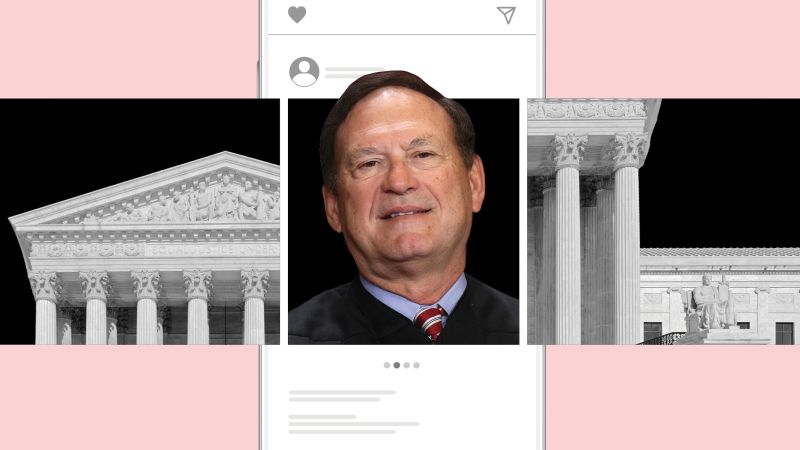In a unique turn of events, Supreme Court Justice Samuel Alito’s usual hardline approach backfired when two other justices, Amy Coney Barrett and Ketanji Brown Jackson, abandoned his 5-4 majority on a case regarding social media companies’ content filtering. Alito’s tactics aimed at favoring states that sought to restrict social media platforms could have brought about significant changes in how these platforms operate. Ultimately, a 6-3 ruling, led by Justice Elena Kagan, upheld the First Amendment rights of social media companies, with Alito finding himself on the losing side.
Alito, known for his conservative ideology, often finds himself in the majority on the Supreme Court. However, this term saw him facing internal opposition, losing two majority opinions during the writing process. As a result, Alito wrote the fewest leading opinions for the court this term, showing a decline in his influence and support within the court. His frustrations and vexations have become more evident in the courtroom, as evidenced by his string of losses in key cases.
Aside from his legal battles, Alito faced public scrutiny for his off-bench activities, including lingering ethics controversies and an episode involving an upside-down flag at his home following the Capitol attack on January 6, 2021. Calls for Alito’s recusal in Trump-related cases were made by Democratic members of Congress after news of the flag incident surfaced. Despite this, Alito declined the requests and further declined CNN’s request for an interview. The Supreme Court justice’s actions off the bench have generated significant attention and criticism.
The legal disputes in Texas and Florida stemmed from claims of censorship by social media platforms targeting conservative viewpoints. The laws enacted by these states in 2021 restricted the ability of platforms to filter third-party content, and were passed shortly after Trump was removed from social media following the Capitol attack. Lawsuits brought by internet trade association NetChoice argued that these laws violated social media companies’ First Amendment rights, leading to temporary blockages by district court judges in both states. Appellate courts differed in their interpretations, with the 5th US Circuit Court of Appeals ruling against the platforms and the 11th US Circuit Court of Appeals ruling in favor.
The decisions made in the Texas and Florida cases highlight the ongoing debate surrounding social media censorship and free speech rights. The varying interpretations of the First Amendment in these cases underscore the complexities involved in regulating online content and the editorial discretion of platforms. With the legal landscape evolving and presenting new challenges, the role of the judiciary in balancing free speech rights with platform regulations remains a contentious issue. The cases also reflect the broader political climate surrounding online censorship and the implications for First Amendment protections in the digital age.


